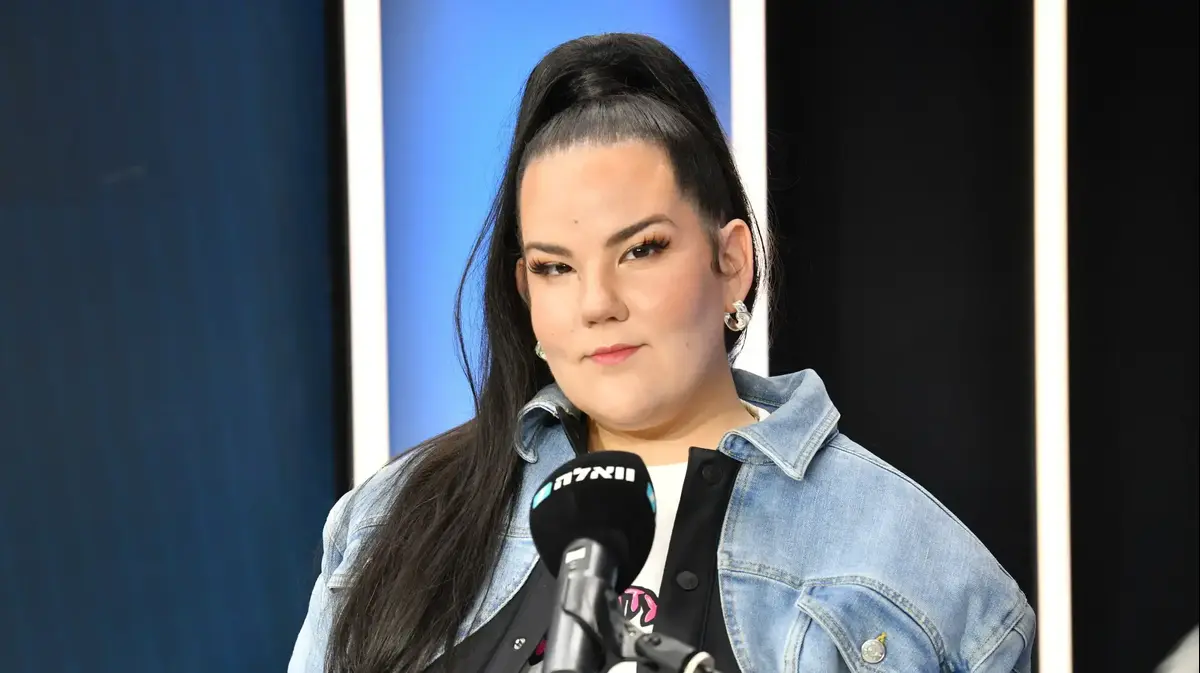Something in his eyes, in his sadness, shocked me.
Kalman, the eldest brother who was murdered in Auschwitz (photo: courtesy of the family)
They were four brothers.
Kalman, the elder, was murdered by the Nazis in Auschwitz.
My father, Zvi, died 38 years ago when I was a child.
Peretz passed away a few years ago.
Zeev, who will be distinguished for a good and long life, is the last one left.
Sometime - a year ago, maybe a little more - we were struck by the realization that our last uncle, who lives in the USA, entered the second half of his eighties, and although he visits here quite a bit, and although we are in close contact with him by phone, and although we talk to him almost openly About every topic in the world - somehow, the Holocaust was always left aside in these conversations.
And because of that, and because Uncle Ze'ev is the only one who can still tell us about our grandparents, about the escape from the Nazis, about Kalman who was taken to "work" and never returned, and about the central role played by our father , then a young boy, in his life - it was clear that it was time to sit him down and ask him to talk. And it wasn't easy.
Zeev, and this is one of the first things we learned, over the years did everything possible not to open the stories of the past.
"I never talked about it, not with your father, not with Peretz, not with my parents," he surprised me.
"Even when they asked me to come and talk to students in schools, I didn't want to. Except for one time when I spoke to the medical staff at the military hospital in Florida where I volunteered, I didn't share anything with anyone. I never even sat down with my grandchildren to tell them."
The youngest adult in the world.
Uncle Ze'ev at the Western Wall (photo: courtesy of the family)
This conversation with my beloved uncle gave me a strong shock and taught me how much I don't understand anything.
How completely wrong I lived, when I thought my family had finished the war, shook off the dust, cried for Kalman as much as she cried, and moved on.
How much I couldn't really relate to what goes through a child like Zeev, who leaves home at the age of 6, and wanders for several years from place to place, and loses contact with his parents, and has no idea what is going on with them, and does not know if they are alive, and does not know why to wait and why to hope and when All of this will end, and I don't know if someday that moment will come when someone will find him and take him back home, and how much I didn't know that all of this is hanging over him like this even after almost 80 years.
"How can it be that for decades you didn't talk about it with my father and Peretz, who were brothers so close to you", I don't understand.
"How could you not exchange a word with them about what you went through?".
"I don't know how to explain it to you," he replies, "It was a bad dream that ended, and we left it behind. I don't have a better answer to give you. It's very difficult for me."
More in Walla!
B-Cure Laser in an experience sale at an unprecedented and exclusive price
Served on behalf of B Cure Laser
"Life made him a man"
It started with a few hours of recordings he sent me from an interview conducted with him by a man from the Holocaust Museum in Washington, continued with a conversation we had around the Shabbat table in his apartment in the retirement village in Florida, and ended a little more than six months ago in our living room.
Zeev spoke slowly, with difficulty, here and there his voice choked.
If I noticed correctly, this happened every time the conversation brought up some detail related to his mother, my grandmother, who lost her firstborn Kalman when she was forty-something years old, and until the day of her death, a few years later, did not recover from the loss.
For years I made every effort to collect details about Kalman.
To learn who he was, what he loved, what he looked like and how the man whose name I bear met his death.
Generally, these efforts did not bear fruit.
Moreover, in a way that is difficult for me to explain, until a few years ago Kalman was a rather distant figure for me.
I remember myself standing at the moments of the siren, every day of the Holocaust, trying to connect with him and not quite succeeding.
After all, how can you connect with someone who you have no idea what he would look like?
All of this changed in one fell swoop two and a half years ago, on the same morning when his picture landed with me for the first time, a picture he obtained with the help of archives in the USA and Germany, the young son of my cousin from the USA.
This photo, of a 16-year-old boy, with a tormented face, it is not entirely clear where and when it was taken, made Kalman tangible.
Something in his eyes, in his sadness, in his young age, shocked me.
Kalman, I suddenly realized, was just a boy.
A boy younger than my little daughter.
And since then, in front of this picture, I can't stop thinking about him.
What happened to him on such a long journey from Belgium to Auschwitz?
What did he know about the fate that awaited him there?
Did you know anyone on the train?
Did he have anyone to share the fear with?
Who to talk to?
who to ask
did he cry
My father died when I was a child.
Unlike mother, a survivor of Birkenau, who only at a late age agreed to start telling us what she went through in the war, father spoke more.
But as mentioned, since I was 15 he has been gone with us.
I didn't have time to ask many questions.
I didn't have a chance to hear many answers.
Quite absurdly, some of the facts that I know today about the fate of his older brother Kalman, and that I found courtesy of the developing technology, my father did not get to discover.
Father was born in 1928 in Frankfurt, Germany.
Kalman was born two years before him.
broke out three years after him.
Zeev, the youngest of the group, came into the world in 1936. My grandfather, according to the stories, was a wealthy man thanks to a successful Mgivaot factory he ran.
Shortly after Kristallnacht, when the family realized that Germany would no longer be a safe place for Jews, he went to Belgium to find a new place to live, and paid a lot of money to those who helped him move the children after him.
"Each child was smuggled in by a different smuggler," says Zeev.
"Every few days one of us was moved. Father moved first to arrange a place for us. Mother moved last, only after making sure all the children had arrived."
"He received a summons for forced labor in the East."
Auschwitz concentration camp (Photo: Reuters)
After a period in the city of Antwerp, the family moved to Brussels.
Zeev has mostly small memories of this period.
"I remember the apartment we lived in. I remember that your father used to play football with me. I remember that one time he took me for a walk in the nearby forest, and suddenly we saw not far from us people with leather jackets like that. Your father told me that they were Germans and that we should move away from there quietly , little by little, without running and without attracting attention.
"A little after that, when there was a feeling that our apartment was no longer safe, we moved to another apartment.
Your father, who was 14 or 15 at the time, managed everything.
He was the one who looked for an apartment to hide in, he was the one who did the shopping when he had to.
He was the only one walking around outside.
The parents did not leave the house.
Even when Jews had to wear a yellow patch, your father would walk around outside without a patch to get us what we needed."
Father was very young for all this, I remark.
"Young or not young, life turned him into a man. A few days after we moved, he passed by the house we lived in before, and saw that the Gestapo were there looking for something. Apparently someone tipped off that there were Jews there. They missed us by a few days."
"No one found him"
Uncle Zeev can be said to be the youngest adult in the world.
An 86-year-old man with the soul of a 15-year-old boy. Funny, playful, childish in the best sense of the word.
One who, even at his age, manages to make my parents' grandchildren and great-grandchildren fall for him and fight over who takes him first, as soon as he lands here.
He immigrated to Israel after the establishment of the state, left it for the USA after his military service, but remained very connected to everything that happens here. In the past, before the age of networks, my parents would mail him, at his request, "Ba Mahaman" and "Biteon of the Air Force" Nowadays, when everything is published everywhere, I find myself having to answer him on the phone to questions about events that took place this morning in the Knesset's education committee, events that no one except him and the chairman of the committee had heard about.
When I ask him to bring me back to one image that is etched in his mind more than anything from those days, he takes me to his parting with Kelman, in the summer of 1942. 6, and Kalman is 16. He picked me up in his arms, gave me a kiss and told me 'don't worry.' . I remember dad telling her that it will be okay. That was the last time I saw Kalman."
A few years ago - with the help of the museum that operates today in Mechelen, in a place that was then used by the Nazis to round up Belgian Jews for their deportation to concentration and extermination camps in Eastern Europe - I was able to trace the route that Kalman took from the moment he left home.
"In the summer of 1942", I was told by the museum's management, "Kalman Libeskind received a summons to forced labor in the East, along with a threat of punishment for the entire family if he did not report 'voluntarily' to the Dussin barracks."
Kalman reported to the camp in Machlan on August 1, 1942 and was listed as number 374 on the deportation list of the second transport that left the camp.
"This train left Mechelen on August 11, 1942," says the summary I received, "and arrived at Auschwitz-Birkenau on August 13, 1942. Unfortunately, we do not know what happened to Kalman upon arrival at the camp because we have not found a death certificate or a document with a number tattooed on his name . However, this does not necessarily mean that he was killed immediately, as large parts of the camp archives were destroyed in 1945. We can only confirm that he died after the deportation, but we cannot add information about the date, place or circumstances of his death."
How did you know at the end of the war that Kalman was murdered, I ask Zeev.
Who told you?
"No one," he replies quietly.
"The parents looked for him, and your father looked for him, and no one found him. They tried to help the joint, they advertised his name on radio shows, they put up signs with his name in synagogues in Belgium. Nothing. Later we found someone who said he was With Kalman in the laundry of Auschwitz until three weeks before the end of the war."
If this information is true, it means that Kalman was in Auschwitz for over two years.
But this "if" is big.
Nothing is clear.
Nothing is known.
No details about Kalman have ever been found, beyond the fact that he boarded the same train in Mechelen, on his way to Auschwitz.
"Father and mother couldn't find any details about him and realized he was gone. They tried everything and didn't get an answer from anywhere," concludes Zeev.
"He didn't know then where he was really going."
Children in a concentration camp (Photo: GettyImages)
"Say you don't know"
My grandfather, my grandmother and my father spent the war years in a hiding apartment in Brussels.
Even earlier, a few months after Kalman went to Beli again, grandparents decided to spread risks.
"It was clear that the situation was getting bad, and that it was too dangerous to leave us," recalls Zeev.
"Grandpa paid a lot of money to a rich gentile, who had a kind of big castle like this, and sent me and Peretz to live with her. There were a total of 14 of us there. Some of the children were not Jews, but those whose parents were partisans. Grandpa thought we would be more protected with her.
" They divided us there into two classes, according to age.
Peretz was in one, and I was in the other.
There were dozens of rooms in this castle, some of which we were not allowed to enter.
Once or twice my father and mother managed to come visit us there, to see that we were all right.
cried when they left.
Once your father came alone, without them.
He explained to us that the situation is not good and that we can't go home for now, but I don't think I understood then what exactly was happening."
Zeev tells me a story that I remember hearing from my father as a child, about that time when grandparents came with him to visit the little children, and just before they got off the train at the nearest station, someone who probably recognized them as Jews approached them, and saved them by whispering to them: "The Gestapo are walking around the station, don't get off Here".
"After about a year," says Zeev, "the owner of the castle decided to get rid of us and handed us over to the Gestapo. They took us in a large vehicle to the building, which I remember to this day. On the way there, Peretz held my hand and reminded me of what your father told us all the time. "If they ask you, never tell anyone where your parents live. Say you don't know."
"We were brought into this Gestapo building at night. It was dark. They put several children in a separate room, and then they brought us in one by one and asked us questions. They asked us about our parents, asked where they lived, and what we knew, and I said what Father Yours told me to say. That I don't know and don't remember. We were there maybe a day, maybe two days. The partisans probably found out very quickly where we were. Then, at night, we suddenly heard explosions and shots, and they came in and took us all out. I think they killed some of the people there In any case, we were put in a truck with such benches, and they drove with us for several hours, at the end of which we got off at the monastery. I sat next to Peretz the whole way, who tried to calm me down and assured me that everything would be fine. In general, during these years he was the big brother who watches over me and protects me from everything ".
Jews board a train in Austria (photo: official website, Yad Vashem)
Zeev describes a long period of stay in the monastery, far from home, far from father and mother, without any ability to know when all this will end.
"There was a priest there and there were nuns there and there were scary dogs around," he recalls.
"We were there for almost two years. The nuns gave us lessons on all kinds of subjects, but what bothered us more than anything was the hunger. We got food once a day and it wasn't enough. We would go to bed hungry and wake up hungry. They would wake us up in the middle of the night for prayers, and I hated That. Less because I was Jewish, and more because no child likes to be forced to pray instead of sleeping. The problem was that those who didn't pray properly were punished. The priest would tell us that those who didn't pray would get less food, and he would show us that even the dogs outside ate more Better than us. There were such big black dogs there. Once one of them bit me."
"Peretz, who was older, understood much more than I did the meaning of being Jewish, and the meaning of being taken to pray in church, and it bothered him more. He would tell me, 'Don't say anything.' Only later did I understand what was there." .
He, the wolf, has very few memories to share from the days at the monastery.
"Towards the end of the war," he recalled, "big battles were taking place in our area. The monastery was around Bastogne, in the Ardennes region. As children, we didn't know who was shooting at whom, and if it was good or bad, but the ground shook from the bombings that were around us. I remember the moment where the partisans entered, when the war ended. I don't know if it was their children who told them that they didn't treat us so well and that they didn't let us eat, but I do remember that they entered the monastery, took the priest and shot him against the wall. The nuns had their hats taken off, and the priest shot".
where did you go from there
"They took us out of the monastery and moved us to a place that was like a convalescent home or a hospital. We were there for a few weeks or months, and there they let us eat properly. We arrived there skinny. We lost a lot of weight in the monastery. All this time we didn't know where father and mother and the family were. We didn't know How was the war for them and what happened to them. We were just waiting for someone to come and take us. And I can't forget the moment when the door opened, and your father came in. He was the first to find us. I jumped on him. We hugged. We were going home. He came to take me.”
My father was only 17 at the time, I remind him, he was also a kind of child.
"We were never children," sighs Zeev, and continues to explain how big and significant my father's role was.
"I got home. I met mom. She hugged me. We both cried. She looked at me, to see how I looked. If I was whole. But then it turned out that I didn't know how to talk to her and dad. In the monastery they only spoke French, and I didn't remember any language otherwise that I knew before. Father and mother did not understand me, and I did not understand them. They spoke German, Yiddish and a little Flemish. Imagine how terrible it is, that I return home after the Holocaust and cannot speak to them. For almost six months, your father, who knew how much Languages, he was the mediator between us. He translated for me what the parents say, and translated for them what I say."
"Empty chair at the table"
A few years ago, Zeev was interviewed for a few hours for a documentary project of the Holocaust Museum in Washington.
One sentence in this interview burned my ear.
It happened when he told an interviewer that if it were up to him, he would drop an atomic bomb on Germany and destroy it.
When asked why, he replied: "Because of what they did to my mother."
It was strange for me to hear, I told him, you didn't want to destroy the Germans because of what they did to Kalman, but because of what they did to Grandma.
"After the Holocaust, her life ended," he says, "she hardly laughed anymore. She sank into depression. She never stopped missing Kalman. She would leave an empty chair at the table for him every Shabbat and every holiday. I remember that once, on one of the holidays, my father said To her that today is a holiday, that she should be happy, but she wasn't able to. She was a very sensitive woman. She always thought of the children much more than herself. The children were everything to her. A Yiddish Ma'am. She couldn't go on."
Ten years after the Holocaust, when she was only 52 years old, grandmother fell ill and died.
"She became sick that Kalman was gone. She could not live with the fact that her son was murdered like that."
Even earlier, shortly after the war, at the end of 1945, my father was the first in the family to immigrate to Israel.
He joined the Nutrim, enlisted in the Golani Brigade, fought as part of it in the War of Independence and participated in the battles for the occupation of Nazareth and the occupation of Eilat.
A little after him, Peretz also arrived in Israel, and enlisted in the paratroopers.
After the establishment of the state, my grandparents immigrated to Eretz Israel with a wolf, straight into the difficult life of immigration and later to Rishon Lezion.
At the age of 18, Ze'ev also enlisted in the IDF, as an electronics technician in the Air Force.
A few years later, he and Peretz left the country for the United States, only to discover that the new country they arrived at also wanted them in its military service. Zeev found himself in uniform again, and this time - as crazy as it may sound - on German soil. "When I heard that I was being sent To Germany, I tried to resist.
I said I prefer Korea.
I didn't want to go back there, but it didn't help me.
They told me I had no choice."
Ze'ev came to terms with the evil of the decree and decided that if he was destined to return to Germany, he would travel to take revenge on the Germans in his own way. Once, he told us, he drove wildly through one of the villages while throwing planters and flower pots that were scattered on the street. Another time decided to stop train traffic in the area. "One day I drove the unit's truck over the railroad tracks, stopped the truck, opened the hood, and told everyone who asked that something was wrong, and that I was waiting for a mechanic, and that's how I blocked all the traffic."
Small revenge of the little wolf on the Germans?
I ask him with a smile.
"Something like that," he replies.
"When I returned, the commander called me and told me, 'If you do something like this again, you will stand trial.' He knew that I was Jewish, that I was born in Germany and that I lived through the Holocaust. I think he understood."
Like putting his head on his mother's shoulder, and crying.
Uncle Ze'ev by Grandma's grave (photo: courtesy of the family)
Ascension to the grave
My grandparents are buried in the "Gordon" cemetery in Rishon Lezion.
Grandma died 15 years before I was born.
Grandpa passed away when I was 4 years old, but unfortunately I have no memory of him.
When I was a child, father used to take me with him twice a year to their grave.
On 29 Bader - Grandmother's Memorial Day. In Sivan Hospital - Grandfather's Memorial Day.
Although someone gave this place the name "the new cemetery", it was a very old cemetery that I think had hardly been buried in for many years.
So it turned out that whenever we got to it we would walk around it alone.
Father used to stop with me at some permanent gravestones in the first row, near the main path, and tell me the fascinating stories of the people of old Rishon who are buried under them.
Those were my magical moments with him.
Unforgettable moments of nostalgia.
When father passed away, I informed mother that I was taking on the task.
That from this day on I fill his place, and go twice a year to the grave of my grandparents.
Almost 38 years have passed since then and I still make sure to stop by the grave of the Segal couple, and by that of Gutman the dairyman.
Hard to remember what dad told about them, but remembers well that they were the heroes of those stories.
Once every two or three years, when Uncle Ze'ev comes to Israel, as part of a regular protocol, we travel together to this place, to which his heart draws him above all else.
To his father and mother.
To the Rishon cemetery.
Every time I stand in awe of the image of this man, eighty years old, as he leans heavily on the tombstone of his grandmother - who died at such a young age, so many years ago - as if laying his head on a mother's shoulder, and cries.
Once I had a hard time restraining myself and allowed myself to take a picture of him like that.
For the benefit of this article, I asked his permission to publish the photo.
Late memories
How much the Holocaust is present in your life even today, I ask my uncle before ending, who in the extended family is known above all as a funny man who blows up our WhatsApp with jokes.
"Thoughts about those days came to me at an older age," he explains to me.
"What thoughts?", I try.
"About the parents I couldn't talk to after the war, about your father who was like my second father, about Peretz who helped me and let me eat some of his bread when I was hungry in the monastery, about the moment Kalman gave me a kiss and left, about the mother I miss and who was never happy Little things that I remember when I'm awake at night, and over the years I'm awake more and more."
news
opinions and interpretations
Tags
the holocaust
Holocaust and heroism day
Nazis
Germany
Belgium

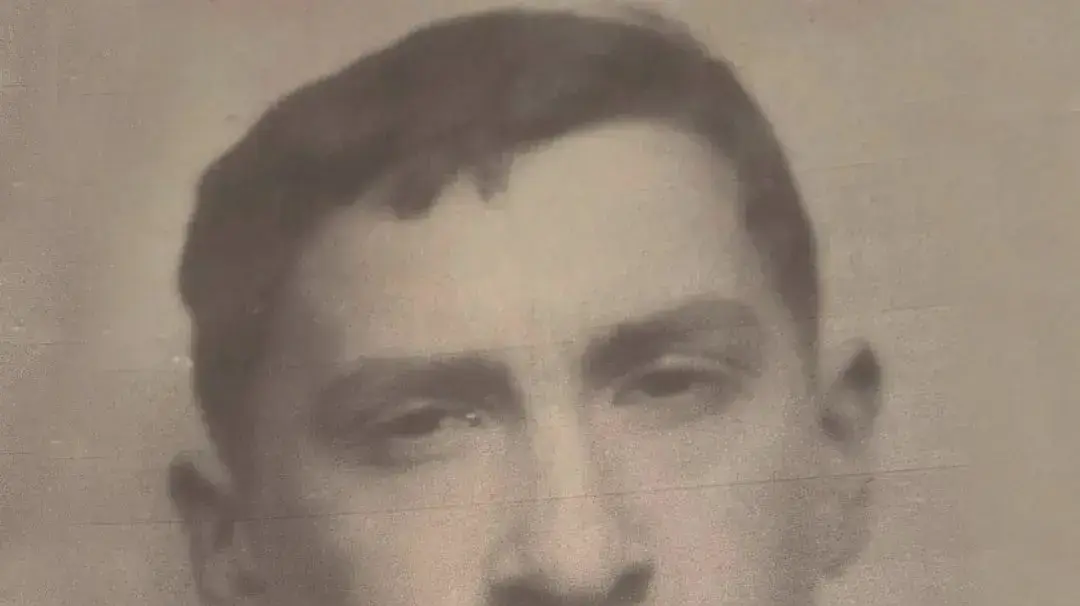
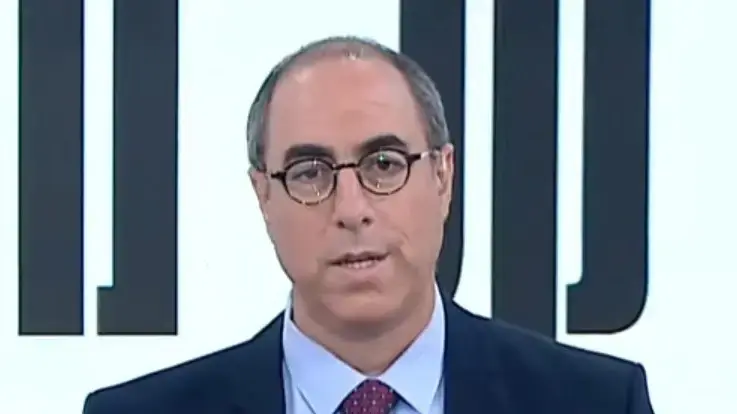
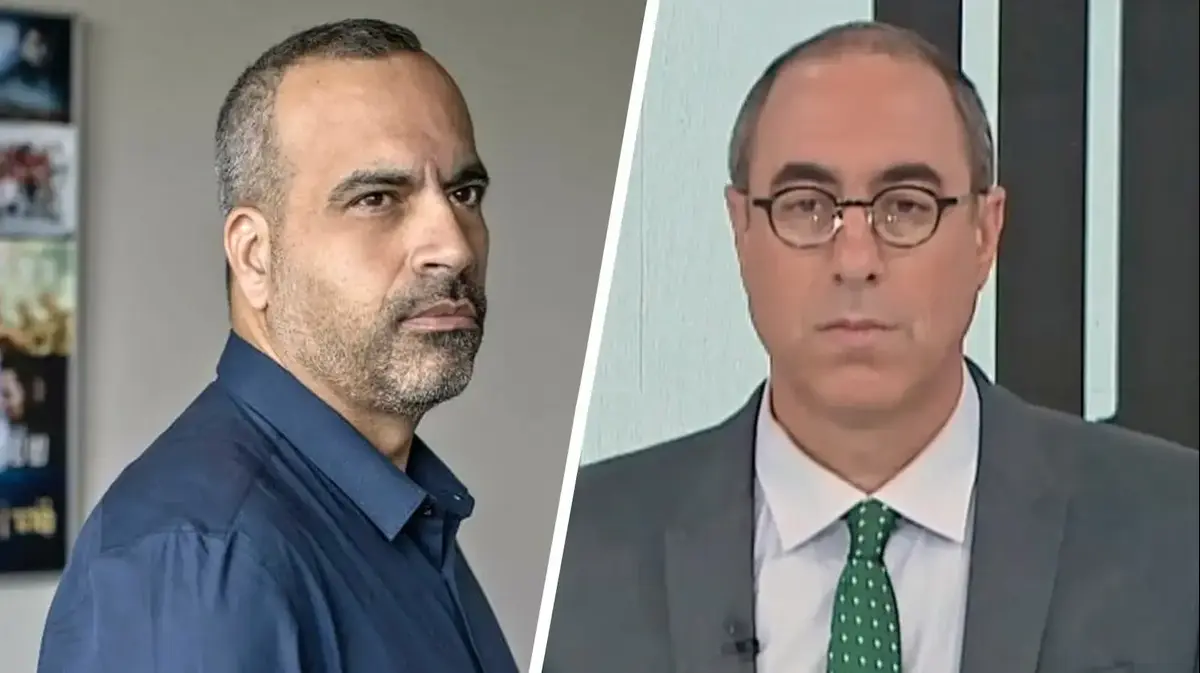
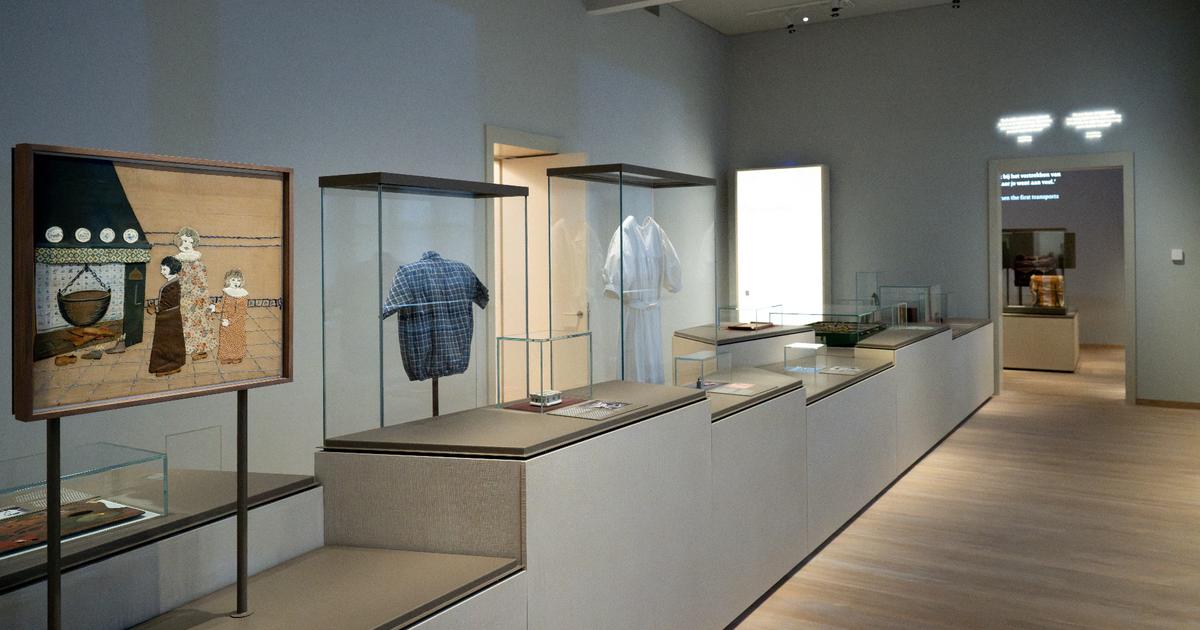

/cloudfront-eu-central-1.images.arcpublishing.com/prisa/OFIE3IOCHJH4RI645WWWIXYPFM.jpg)

